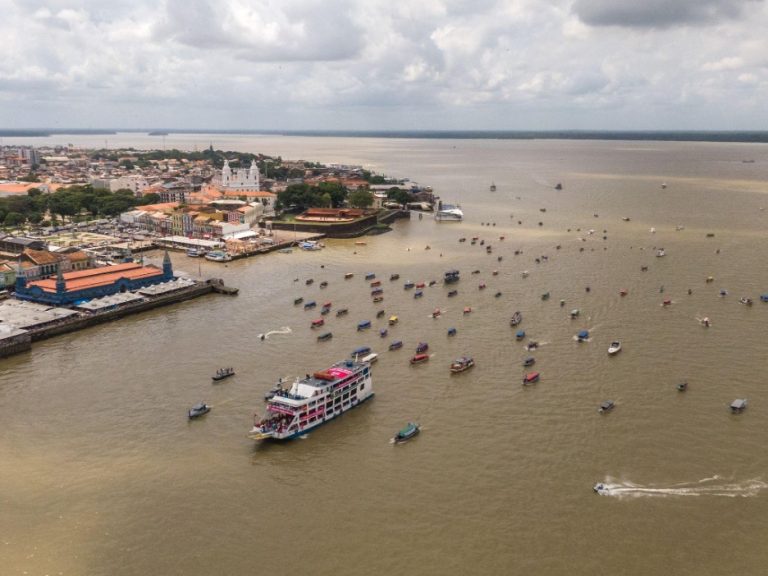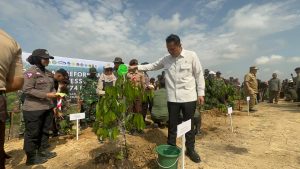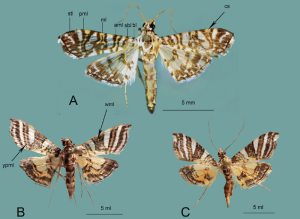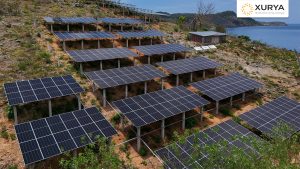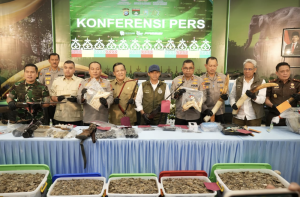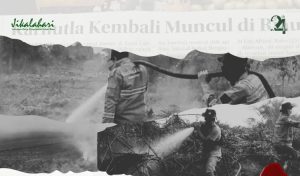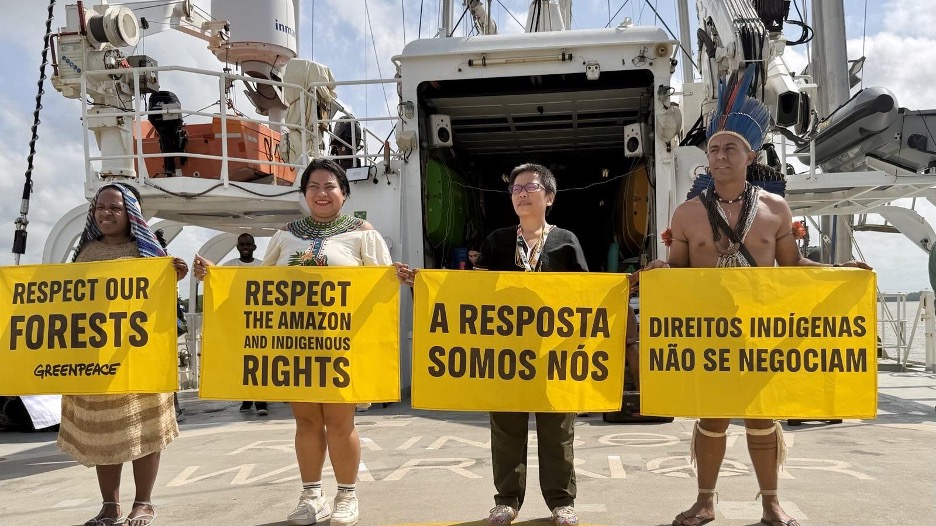
Jakarta — Indigenous leaders from Indonesia and the Amazon joined forces aboard Greenpeace’s Rainbow Warrior ship sailing along the Amazon River, demanding an end to violence and criminalisation of Indigenous Peoples worldwide.
“Stop the criminalisation of Indigenous Peoples! Pass the Indigenous Peoples Bill now!” urged Rukka Sombolinggi, Secretary General of the Indigenous Peoples Alliance of the Archipelago (AMAN), during the voyage onboard the Greenpeace flagship Rainbow Warrior on November 12.
Rukka said that Indigenous communities, who have collectively inherited vital ecological knowledge, are key to climate solutions yet remain marginalised in global negotiations. She cited ongoing criminalisation in Indonesia — from Halmahera and Flores to Central Sulawesi — where Indigenous groups face legal persecution for defending their ancestral lands against mining, geothermal, and plantation projects.
AMAN has recorded 687 agrarian conflicts covering more than 11 million hectares over the past decade, with over 900 Indigenous people criminalised. The group renewed calls for Indonesia’s parliament to pass the long-delayed Indigenous Peoples Bill, first proposed in 2009.
The flotilla of over 200 boats from 60 countries, carrying 5,000 Indigenous representatives, sailed to Belém for COP30 to protest “false climate solutions” and assert that Indigenous stewardship is essential for a sustainable world.
“This must be a COP of action — for climate, for forests, and for people,” said Greenpeace Brazil Executive Director Carolina Pasquali.
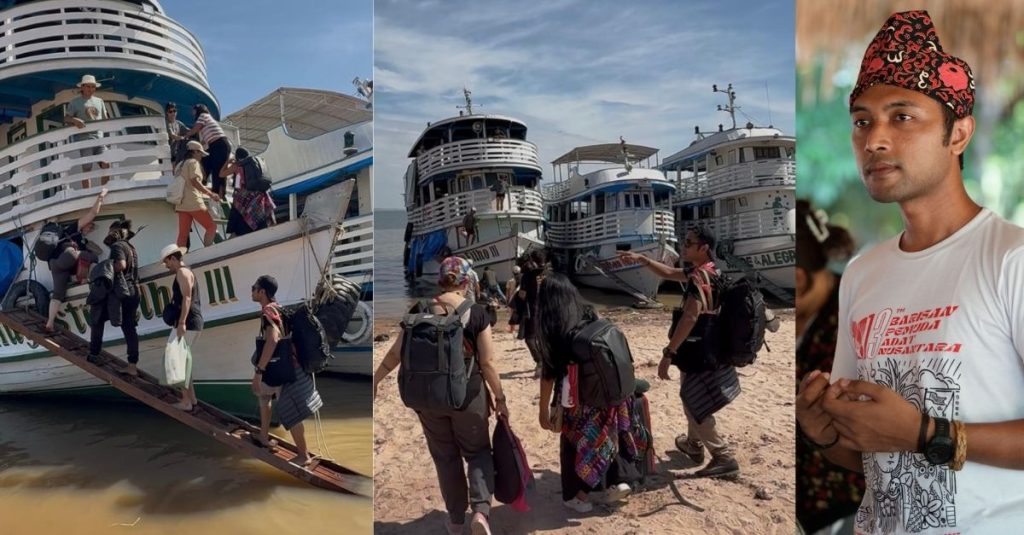
Young indigenous people from Bengkulu sail on the Amazon
Hero Aprila, a traditional youth from Bengkulu, sailed with hundreds of traditional youths from around the world in the “Yaku Mama Amazon Flotilla” expedition to the 30th United Nations Climate Change Conference (COP30) in Belém, Brazil.
The voyage was not merely a sea journey, but a symbol of cross-continental solidarity in the fight for the rights of indigenous peoples amid the global climate crisis. Hero represented the Barisan Pemuda Adat Nusantara (BPAN), the Aliansi Masyarakat Adat Nusantara (AMAN), and the Global Alliance of Territorial Communities (GATC).
“We from Indonesia have come not only to participate, but to make our voices heard. The issues faced by indigenous peoples in the Amazon are the same as those in Indonesia: land grabbing, criminalisation and loss of living space,” said Hero from Belém, Brazil, in a written statement on Monday, 10 November.
The Yaku Mama Amazon Flotilla expedition began in Ecuador in early October 2025 and travelled more than 3,000 kilometres through Peru and Colombia before docking in Brazil. The three-tiered wooden boat carried more than 50 indigenous youths from across Latin America.
Yaku Mama, which means “Mother Water”, has become a symbol of the protector of life and guardian of the world’s water sources. A large banner stretched across the ship’s hull read “End Fossil Fuels – Climate Justice.” “For us, sailing on the world’s largest river is not only a spiritual experience, but also a symbolic form of resistance against climate injustice,” said Hero.
This theatrical action was deliberately carried out to draw the world’s attention so that the issue of indigenous peoples’ rights to their territories would be included in the climate negotiations at COP30.
Voices from the Archipelago for the World
Hero also carries an important message about climate funding that directly affects indigenous peoples, the preservation of ancestral knowledge, and the protection of indigenous rights defenders. He is scheduled to speak at a number of forums at COP30, such as the Shandia Forum, the Global Youth Roadmap for Climate Justice, and the Youth Movement initiated by GATC.
Hero also shared the story of the Talang Mamak Indigenous Community in Riau, which has a tradition of clearing land by controlled forest burning, based on local wisdom. However, this practice is often questioned by modern law.
“Apparently, the same problem also occurs in Amazon. Thousands of kilometres apart, we face the same wound,” he said.
For Hero, sailing on the Yaku Mama is not just a physical journey, but a symbol of the unity of indigenous peoples around the world. “We are sailing to convey the message that indigenous peoples are not victims, but guardians of the earth. The world must hear our voice,” he said. (Hartatik/nsh)
Banner photo: A flotilla of Indigenous vessels from various regions of the Amazon sails down the Amazon River in Brazil on 12 November 2025. The fleet is carrying 5,000 Indigenous people demanding an end to violence against Indigenous peoples and real climate action at COP30, currently taking place in Belém, Brazil. (Christian Braga/Greenpeace)

